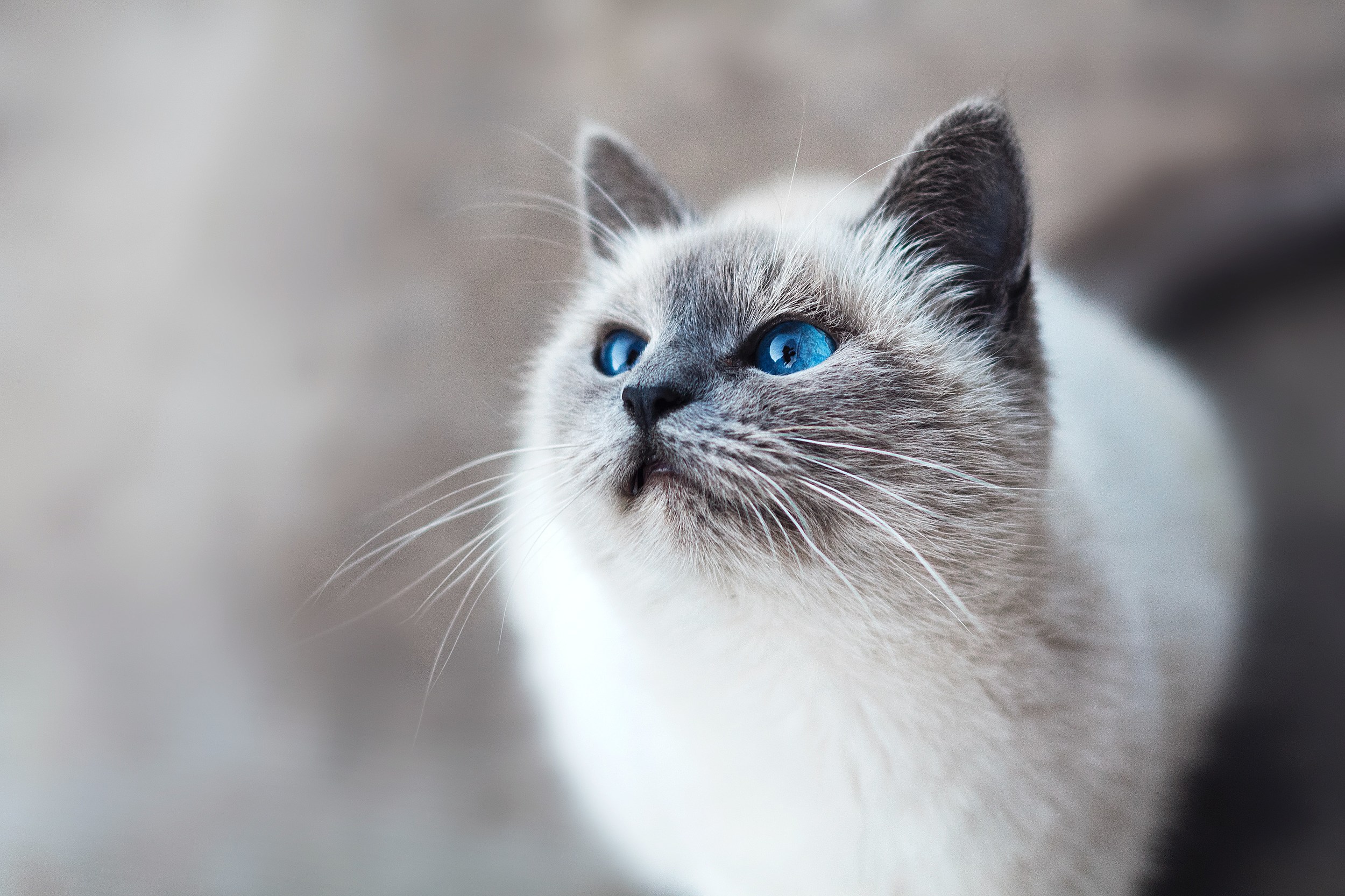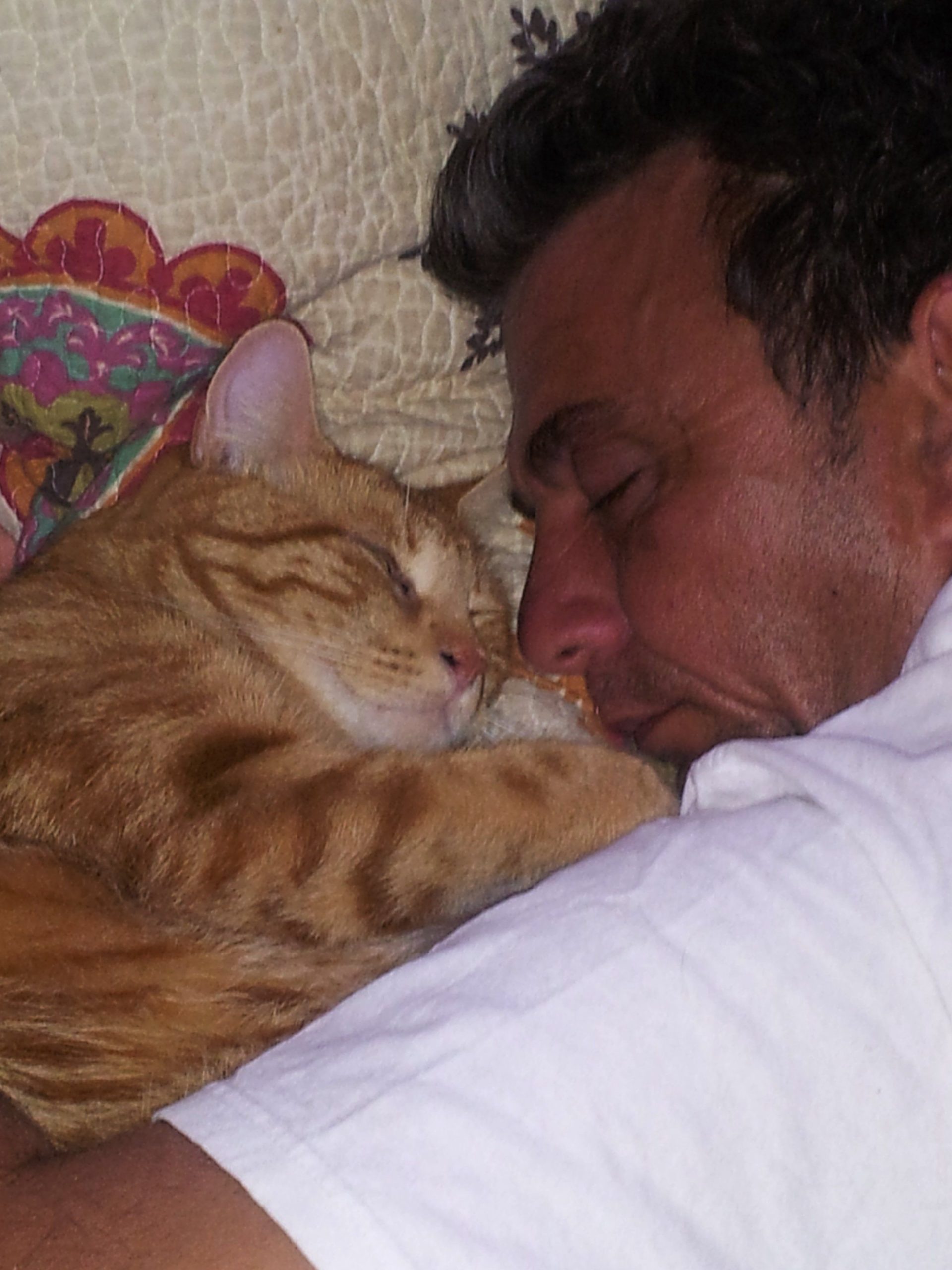Contents
- I. Introduction to Maine Coon Lifespan
- II. Factors Affecting Maine Coon Lifespan
- III. Understanding the Average Lifespan of Maine Coons
- IV. Common Health Issues that Impact Maine Coon Lifespan
- V. Tips for Prolonging the Lifespan of Maine Coons
- VI. Frequently Asked Questions about Maine Coon Lifespan
- 1. How long do Maine Coon cats typically live?
- 2. Are there any factors that can affect a Maine Coon’s lifespan?
- 3. Do Maine Coons have any specific health issues that can shorten their lifespan?
- 4. How can I promote a healthy lifestyle for my Maine Coon?
- 5. What signs should I look out for that may indicate a health problem?
- 6. Can I extend my Maine Coon’s lifespan through proper care?
- 7. Is it true that Maine Coons have a slower aging process compared to other cats?
- 8. Do Maine Coons require any specific care as they age?
I. Introduction to Maine Coon Lifespan

When it comes to owning a cat, one of the most common questions that people have is about their lifespan. Understanding how long a specific breed can live is crucial for providing the best care and ensuring a happy and healthy life for your feline companion. In this article, we will delve into the lifespan of Maine Coon cats, one of the most popular and beloved cat breeds in the world.
The Longevity of Maine Coon Cats
Maine Coon cats are known for their exceptional lifespan compared to other cat breeds. On average, these majestic creatures can live anywhere between 12 to 15 years. However, it is not uncommon for Maine Coons to surpass this range and live well into their late teens or even early twenties. This impressive longevity is attributed to their robust health, strong genetics, and the care provided by their owners.
Factors Influencing Lifespan
Several factors can impact the lifespan of a Maine Coon cat. Genetics play a significant role, as cats from healthy and long-living bloodlines tend to have a higher chance of living longer. Additionally, proper nutrition, regular exercise, and routine veterinary care are all crucial in maintaining the overall well-being of your Maine Coon and increasing their lifespan.
Health Concerns
While Maine Coons are generally healthy cats, there are a few health concerns that owners should be aware of. Hypertrophic cardiomyopathy (HCM), a common heart condition in cats, is more prevalent in Maine Coon cats compared to other breeds. Regular cardiac check-ups and monitoring can help detect any early signs of this condition, allowing for timely intervention.
Providing a Long and Happy Life
To ensure that your Maine Coon cat lives a long and happy life, it is essential to provide them with a stimulating environment, regular exercise, and a balanced diet. Making sure they are mentally and physically engaged will help prevent boredom and promote their overall well-being.
II. Factors Affecting Maine Coon Lifespan

Maine Coons are known for their impressive size and long lifespan. While genetics play a significant role in determining a cat’s lifespan, there are several other factors that can affect how long a Maine Coon lives. Understanding these factors can help cat owners provide the best care for their furry friends.
Diet and Nutrition
A balanced diet and proper nutrition are essential for maintaining a Maine Coon’s health and longevity. Feeding them high-quality cat food that is specifically formulated for their age and size can help prevent obesity, which can lead to various health issues. Providing a diet rich in protein, vitamins, and minerals will ensure that their bodies receive the nutrients they need to thrive.
Exercise and Activity
Maine Coons are an active breed and require regular exercise to stay healthy. Engaging them in play sessions and providing interactive toys can help keep them mentally and physically stimulated. Regular exercise not only helps prevent obesity but also promotes good cardiovascular health and muscle development, ultimately contributing to a longer lifespan.
Regular Veterinary Care
Regular check-ups with a veterinarian are crucial for maintaining a Maine Coon’s overall health. Routine vaccinations, parasite prevention, and dental care are essential aspects of their healthcare regimen. Regular veterinary examinations can help detect and treat any potential health issues early on, improving their chances of living a longer life.
Stress Management
Maine Coons are known for their friendly and sociable nature. They thrive in environments where they feel loved, secure, and stress-free. Stress can have a negative impact on their health and lifespan. Providing a calm and peaceful living environment, allowing for plenty of rest and relaxation, and minimizing exposure to stressful situations can help promote their overall well-being.
Genetic Factors
Maine Coons, like any other breed, have certain genetic predispositions that can affect their lifespan. Responsible breeding practices can help reduce the risk of inherited health conditions. It’s important to obtain Maine Coons from reputable breeders who prioritize the health and longevity of their cats.
By considering these factors and providing the necessary care, Maine Coon owners can contribute to their pets’ longevity. A well-balanced diet, regular exercise, veterinary care, stress management, and responsible breeding practices can all play a role in ensuring that Maine Coons live their best and longest lives.
III. Understanding the Average Lifespan of Maine Coons

Maine Coon cats are known for their large size, friendly nature, and striking appearance. If you are considering bringing one of these majestic felines into your home, it’s important to understand their average lifespan. By knowing how long Maine Coons typically live, you can ensure that you provide them with the best care throughout their lives.
1. Factors That Influence Maine Coon Lifespan
Several factors can affect the lifespan of Maine Coon cats. Genetics play a significant role, as cats with a strong genetic background tend to live longer. Additionally, the overall health and wellbeing of the cat, including regular veterinary check-ups, vaccinations, and a balanced diet, can contribute to a longer lifespan.
2. Average Lifespan of Maine Coon Cats
On average, Maine Coon cats have a lifespan of around 12 to 15 years. However, it’s important to note that this is just an estimate and individual cats may live shorter or longer lives based on various factors. Some Maine Coons have been known to live well into their late teens or even early twenties with proper care.
3. Tips for Increasing Maine Coon Lifespan
If you want to ensure that your Maine Coon lives a long and healthy life, there are several steps you can take:
– Provide a nutritious diet: Maine Coons have specific dietary requirements due to their size and breed. Consult with your veterinarian to determine the best diet for your cat and provide them with high-quality cat food that meets their nutritional needs.
– Regular exercise: Maine Coons are energetic cats and need regular exercise to maintain a healthy weight and prevent obesity-related health issues. Engage in interactive play sessions with your cat and provide them with toys and scratching posts to keep them active.
– Regular veterinary check-ups: Schedule regular check-ups with your veterinarian to monitor your cat’s health and detect any potential issues early on. Vaccinations, parasite prevention, and dental care are all important aspects of maintaining your Maine Coon’s wellbeing.
– Provide a safe environment: Maine Coons are curious cats and may explore their surroundings. Ensure that your home is safe and free from potential hazards that could harm your cat.
4. Recognizing Signs of Aging
As your Maine Coon ages, you may notice certain signs of aging. These can include decreased activity levels, changes in appetite, weight loss, and dental issues. It’s essential to monitor your cat’s health closely and seek veterinary attention if you notice any concerning symptoms.
By understanding the average lifespan of Maine Coons and taking steps to promote their health and wellbeing, you can ensure that your feline companion lives a long and fulfilling life by your side.
IV. Common Health Issues that Impact Maine Coon Lifespan

Maine Coon cats are generally known for their robust health and longevity, but like all living creatures, they can still be susceptible to certain health issues that can impact their lifespan. It is important for Maine Coon owners to be aware of these common health problems and take proactive measures to ensure their cats live a long and healthy life.
1. Hypertrophic Cardiomyopathy
Hypertrophic cardiomyopathy (HCM) is a heart disease that affects Maine Coon cats more than any other breed. It is characterized by the thickening of the heart muscles, which can lead to heart failure if left untreated. Regular cardiac screenings, such as echocardiograms, are essential for early detection and management of this condition.
2. Hip Dysplasia
Maine Coons, like many large breeds, can be prone to hip dysplasia, a condition in which the hip joints are improperly formed. This can cause pain, stiffness, and difficulty in mobility. Regular vet check-ups and providing a comfortable and supportive environment can help manage this condition and improve the cat’s quality of life.
3. Polycystic Kidney Disease
Polycystic kidney disease (PKD) is a genetic disorder that affects Maine Coon cats. It causes the formation of cysts in the kidneys, which can lead to kidney failure over time. Regular kidney function tests and early intervention can help slow down the progression of this disease and improve the cat’s lifespan.
4. Spinal Muscular Atrophy
Spinal muscular atrophy (SMA) is a genetic disorder that affects the muscles and nerves, leading to weakness and muscle wastage. Maine Coon cats with SMA may experience difficulty in walking and may have a shorter lifespan. Genetic testing can determine if a cat is a carrier of the SMA gene, allowing breeders to make informed decisions to prevent the spread of this disease.
5. Obesity
Maine Coon cats are prone to obesity due to their large size and hearty appetite. Obesity can lead to a variety of health problems, including diabetes, joint issues, and heart disease. Maintaining a balanced diet, providing regular exercise, and monitoring their weight can help prevent obesity and promote a longer and healthier life.
By being aware of these common health issues and taking proactive measures, Maine Coon owners can ensure that their beloved feline companions live a happy and healthy life for many years to come.
V. Tips for Prolonging the Lifespan of Maine Coons
Maine Coons are known for their long lifespan, but there are steps you can take to ensure they live a healthy and fulfilling life for as long as possible. Here are some tips to help prolong the lifespan of your beloved Maine Coon:
1. Provide a Balanced Diet
A well-balanced diet is essential for the overall health and longevity of your Maine Coon. Choose high-quality cat food that is specifically formulated for large breed cats like Maine Coons. Make sure the food contains a good balance of protein, fats, and carbohydrates, as well as essential vitamins and minerals.
2. Regular Veterinary Check-ups
Regular visits to the veterinarian are crucial for monitoring your Maine Coon’s health, detecting any potential issues early on, and ensuring they receive necessary vaccinations and preventive treatments. Your vet can also provide advice on maintaining a healthy weight and recommend any additional supplements or treatments that may benefit your cat’s overall well-being.
3. Keep Them Active
Maine Coons are an active and playful breed. Encourage exercise by providing interactive toys, climbing structures, and scratching posts. Engage in daily play sessions to keep them mentally stimulated and physically active. Regular exercise will help maintain a healthy weight, prevent obesity-related health problems, and promote a longer lifespan.
4. Dental Care
Oral hygiene is often overlooked but is crucial for your Maine Coon’s overall health. Regularly brush their teeth using cat-friendly toothpaste and a soft-bristled toothbrush. Dental diseases can lead to various health issues, including heart disease, so it’s important to pay attention to your cat’s dental health.
5. Provide a Safe Environment
Maine Coons are curious cats and love to explore. Ensure your home is safe and free from potential hazards. Secure windows and balconies, keep harmful chemicals out of reach, and provide a comfortable and stress-free living environment. A safe and secure environment will contribute to your Maine Coon’s overall well-being and increase their lifespan.
Fulfilling these tips can significantly increase the lifespan of your Maine Coon. Remember, every cat is unique, so it’s essential to tailor their care to their specific needs. By providing a balanced diet, regular veterinary check-ups, exercise, dental care, and a safe environment, you can help your Maine Coon live a long and healthy life.
VI. Frequently Asked Questions about Maine Coon Lifespan
Curious about the lifespan of Maine Coon cats? Here are some frequently asked questions to help you understand more about their longevity.
1. How long do Maine Coon cats typically live?
Maine Coon cats are known for their relatively long lifespan compared to other cat breeds. On average, they can live anywhere between 12 to 15 years. However, with proper care and a healthy lifestyle, some Maine Coons have been known to live up to 20 years!
2. Are there any factors that can affect a Maine Coon’s lifespan?
Several factors can influence a Maine Coon’s lifespan. Genetics play a significant role, so it’s essential to choose a reputable breeder who prioritizes the health of their cats. Additionally, providing a nutritious diet, regular exercise, routine veterinary care, and a stress-free environment can all contribute to a longer and healthier life for your Maine Coon.
3. Do Maine Coons have any specific health issues that can shorten their lifespan?
Maine Coons, like all cat breeds, are prone to certain health issues. Some common health concerns that can affect their lifespan include hypertrophic cardiomyopathy (a heart condition), hip dysplasia, and polycystic kidney disease. Regular veterinary check-ups and early detection of any health issues can help ensure a longer life for your Maine Coon.
4. How can I promote a healthy lifestyle for my Maine Coon?
To promote a healthy lifestyle for your Maine Coon, provide them with a balanced diet that includes high-quality cat food. Regular exercise, such as interactive play sessions or access to outdoor enclosures, can help keep them physically active. Additionally, ensure they have a safe and stress-free environment, and schedule regular veterinary check-ups to monitor their overall health.
5. What signs should I look out for that may indicate a health problem?
It’s crucial to be attentive to any changes in your Maine Coon’s behavior or physical appearance. Signs that may indicate a health problem include decreased appetite, weight loss, lethargy, changes in litter box habits, excessive grooming, or any visible signs of discomfort. If you notice any unusual symptoms, it’s best to consult with a veterinarian promptly.
6. Can I extend my Maine Coon’s lifespan through proper care?
While there are no guarantees, providing proper care can significantly increase your Maine Coon’s chances of living a long and healthy life. This includes regular veterinary check-ups, a balanced diet, regular exercise, mental stimulation, and plenty of love and attention.
7. Is it true that Maine Coons have a slower aging process compared to other cats?
Maine Coons are known for their slow aging process. They typically reach full maturity around four to five years of age, while many other cat breeds reach maturity by two years. Their slow growth and development contribute to their longer lifespan.
8. Do Maine Coons require any specific care as they age?
As Maine Coons age, it’s important to monitor their weight and adjust their diet as necessary to prevent obesity. Regular dental care is also crucial to prevent dental issues that can arise with age. Additionally, providing a comfortable and safe environment and adapting to their changing needs will ensure they age gracefully.
Remember, each Maine Coon is unique, and their lifespan can vary based on various factors. By providing them with the love, care, and attention they deserve, you can help them live a long and fulfilling life.

Jackson is an accomplished content writer with a flair for captivating storytelling. With a Bachelor’s degree in English Literature from the prestigious University of California, Berkeley, Hunter’s educational background has honed his writing skills to perfection. His love for felines is evident in his extensive knowledge of cat behavior and care, making him an expert in the field. Hunter’s passion for cats has led him to contribute insightful articles to various online platforms, providing valuable information and tips to cat owners worldwide. With his exceptional writing abilities and deep understanding of cats, Hunter continues to create engaging content that resonates with readers and leaves a lasting impact.
